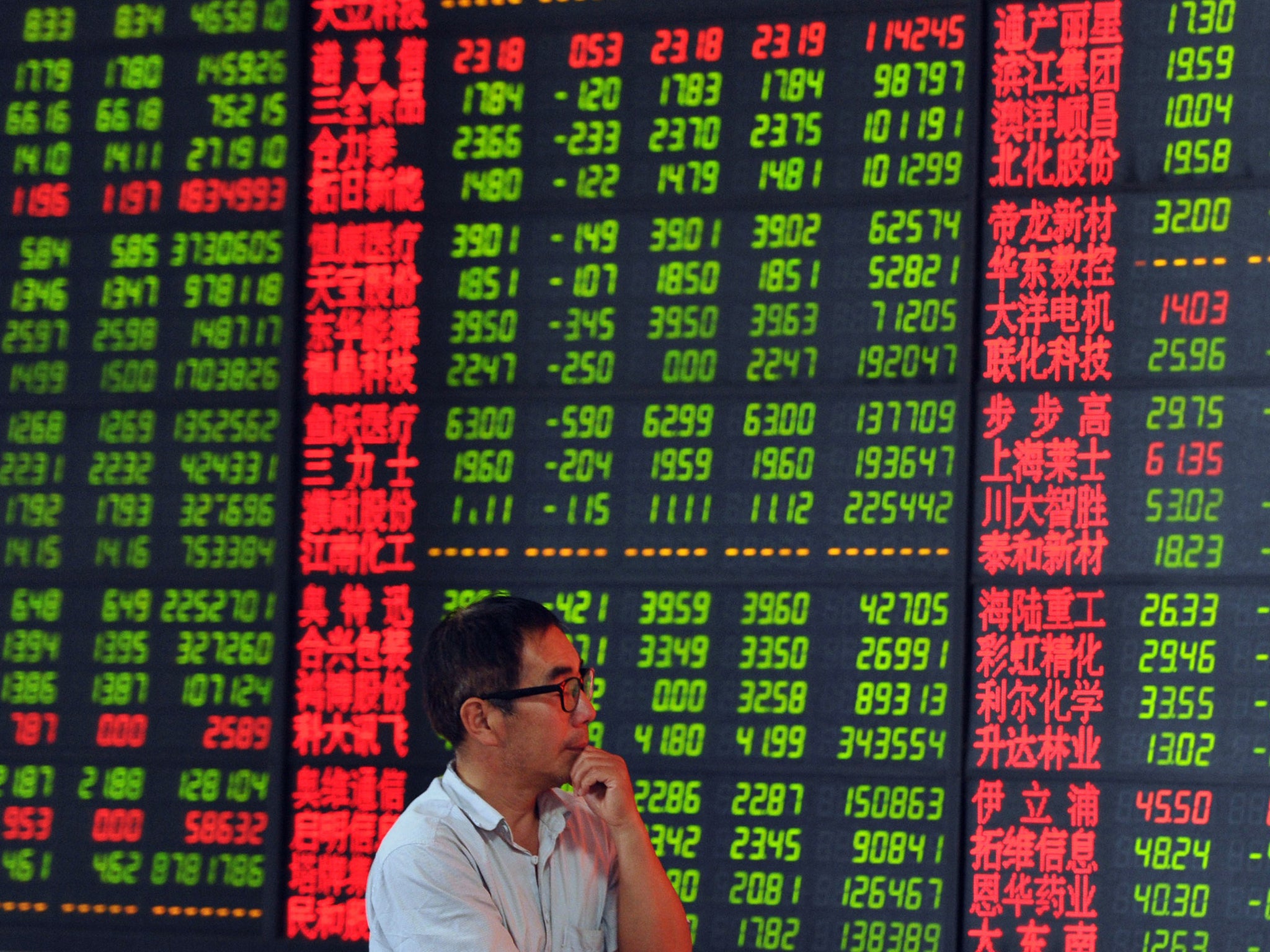China targets market abusers as stock price collapse continues

Chinese stock markets tumbled again on Friday as the country’s financial watchdog began an inquiry into suspected illegal stock market manipulation.
The market sell-off came as the World Bank removed a critical chapter from a report on China’s economy, calling for the country to reform its “distorted” financial markets. The redaction was widely assumed to be a consequence of political pressure applied by Beijing.
Chinese stocks have fallen by around 30 per cent since mid-June after experiencing one of the biggest booms in history in the first half of the year.
The China Securities Regulatory Commission (CSRC) announced yesterday that it is looking for “clues of illegal manipulation across markets”. The investigation is expected to focus on short selling after reports emerged that futures exchanges had been urging traders not to short the market.
The CSI 300 index of the largest listed companies in Shanghai and Shenzhen fell 5.4 per cent to 3885.92 on Friday, while the Shanghai index surrendered 5.8 per cent to 3686.92 points.
“I think it is wishful thinking by the regulator that the decline is solely the fault of short selling, more a reflection of an overvalued stock market that has been fuelled by debt and speculation,” said Jake Robbins, a fund manager at Premier Asset Management.
The sell-off has raised fears that UK investors – including pension funds – could be hit. But Julian Mayo at Charlemagne Capital said: “Whilst Shanghai’s market is taking a bit of a hammering, foreign participation in this market remains very low due to foreign ownership restrictions and its volatility has very little direct impact on UK investors.”
He said there has been a spill-over effect into China shares listed in Hong Kong which are owned by foreigners and have also been sold off recently, “but these should not be as vulnerable to further volatility”.
The World Bank’s report in China, released on Wednesday, had made some stinging criticisms of the Chinese financial system. “Financial reform will only prove effective if it removes the distorted incentives and poor governance structures that have affected how financial resources are mobilised and allocated” it wrote.
“A fundamentally reconfigured role of the state in the financial system is essential.”
But according to the World Bank’s website the critical chapter was removed yesterday “because it had not gone through the World Bank’s usual internal review and clearance procedures”.
The U-turn is unlikely, however, to ease tensions between the World Bank and China, which is in the process of setting up a rival Asian Infrastructure Investment Bank (AIIB) to exert its influence across the fast-growing continent.
The UK, Germany, Australia and South Korea are among the founding members. Japan and the US, which oppose the AIIB, are the most prominent countries not to join.
Last weekend the Chinese central bank cut interest rates and eased some banks’ reserve requirements in order to put a floor under the stock market’s rout.
The authorities have also relaxed rules on margin lending and cut trading fees. Yesterday they also confirmed that the pace of initial public offerings will be slowed to reduce the supply of new equity.
Subscribe to Independent Premium to bookmark this article
Want to bookmark your favourite articles and stories to read or reference later? Start your Independent Premium subscription today.

Join our commenting forum
Join thought-provoking conversations, follow other Independent readers and see their replies